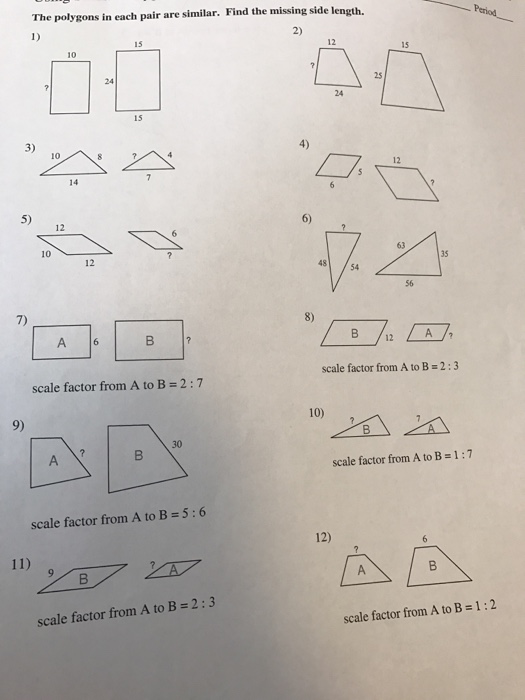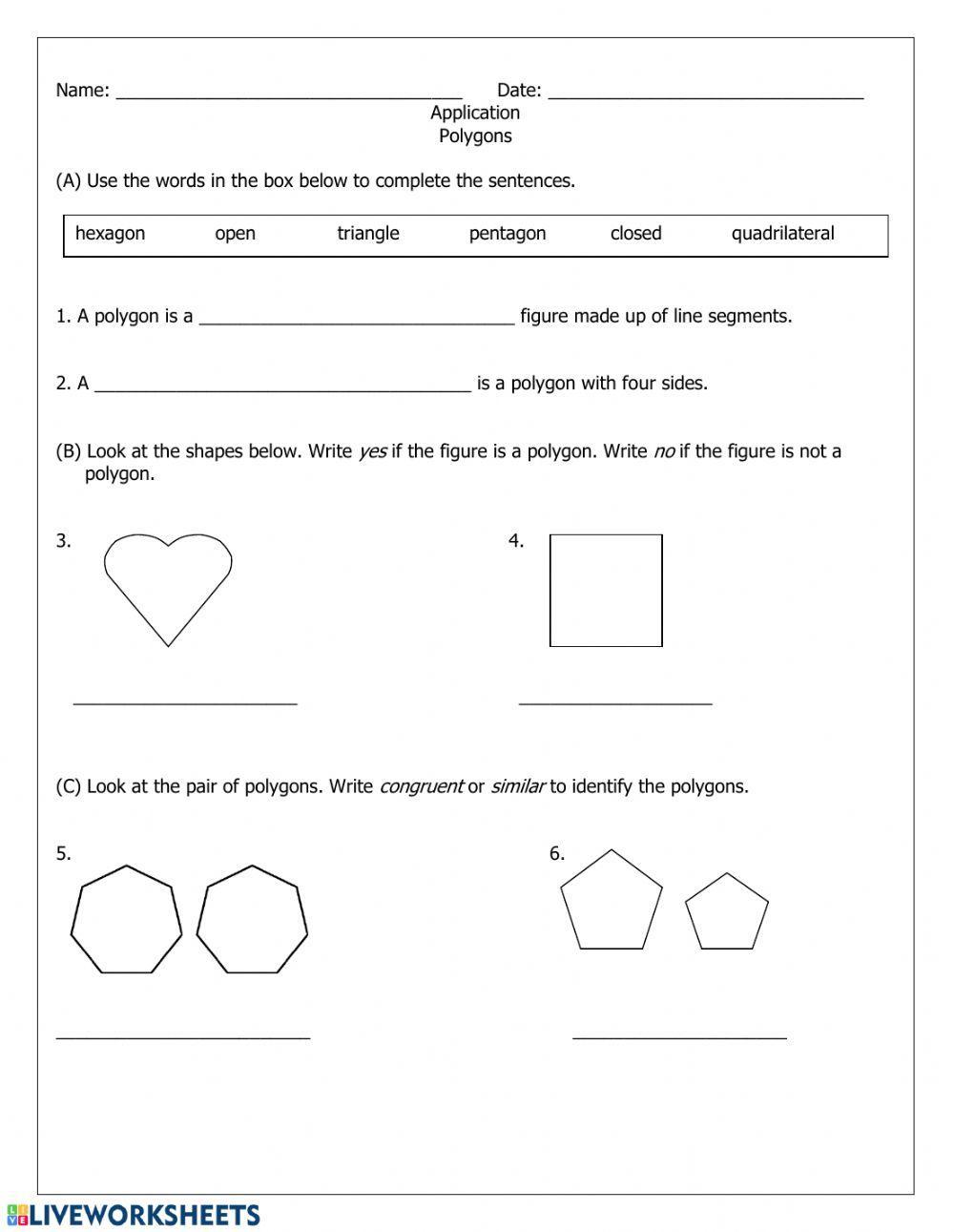Each pair of polygons below is similar. Review what you have learned about similarity as you solve for x. Bringing more math to more students.
Parallel and Perpendicular Lines Worksheet | PDF printable Geometry Worksheets
What does similar mean in geometry? Choose 1 answer: If all of the corresponding pairs of angles in two figures are congruent, then the figures are similar. A If all of the corresponding pairs of angles in two figures are congruent, then the figures are similar.

Source Image: flexbooks.ck12.org
Download Image
Purplemath Proportionality equations can be used to “solve” “similar figures”. What are “similar figures”? “Similar” is a geometric term, referring to geometric figures (squares, triangles, etc) that are the same shape, but one of the pair of figures is larger than is the other. MathHelp.com Solving Proportions

Source Image: chegg.com
Download Image
Polygons interactive worksheet | Live Worksheets Examine each pair of polygons below. Are they similar? Explain how you know. Hint (a): Use the Triangle Angle Sum Theorem to determine whether or not at least two of the angles in each triangle are congruent. Hint (b): Check the ratios of the corresponding sides to see if they are equal.
Source Image: archive.org
Download Image
The Pairs Of Polygons Below Are Similar
Examine each pair of polygons below. Are they similar? Explain how you know. Hint (a): Use the Triangle Angle Sum Theorem to determine whether or not at least two of the angles in each triangle are congruent. Hint (b): Check the ratios of the corresponding sides to see if they are equal. Solution for Directions: The pairs of polygons below are similar. Give the scale factor of figure A to figure B. 2. 3. 6. 4. 10 16 18 A 7.2 4 8 15
A Review Polygon Filling Algorithms Using Inside Outside Test : Free Download, Borrow, and Streaming : Internet Archive
Unit test. Test your understanding of Similarity with these % (num)s questions. Learn what it means for two figures to be similar, and how to determine whether two figures are similar or not. Use this concept to prove geometric theorems and solve some problems with polygons. Polygon Angle-Sum Theorem & Parallelograms | Math notes, Geometry notes, Math geometry

Source Image: pinterest.com
Download Image
Similar Polygons | CK-12 Foundation Unit test. Test your understanding of Similarity with these % (num)s questions. Learn what it means for two figures to be similar, and how to determine whether two figures are similar or not. Use this concept to prove geometric theorems and solve some problems with polygons.

Source Image: ck12.org
Download Image
Parallel and Perpendicular Lines Worksheet | PDF printable Geometry Worksheets Each pair of polygons below is similar. Review what you have learned about similarity as you solve for x. Bringing more math to more students.

Source Image: cazoommaths.com
Download Image
Polygons interactive worksheet | Live Worksheets Purplemath Proportionality equations can be used to “solve” “similar figures”. What are “similar figures”? “Similar” is a geometric term, referring to geometric figures (squares, triangles, etc) that are the same shape, but one of the pair of figures is larger than is the other. MathHelp.com Solving Proportions

Source Image: liveworksheets.com
Download Image
Measurements in Similar Polygons worksheet | Live Worksheets Hence, we can give the answer: no, the two polygons are not similar. Similar polygons can also be considered as a dilation of each other. If the scale factor is 1, then the polygons are congruent. We can use the scale factor of this dilation to work out the measure of unknown sides.

Source Image: liveworksheets.com
Download Image
Classify & Sort Quadrilaterals Hierarchy Chart (includes Shape Cards & Key) | Quadrilaterals, Math geometry, Fifth grade math Examine each pair of polygons below. Are they similar? Explain how you know. Hint (a): Use the Triangle Angle Sum Theorem to determine whether or not at least two of the angles in each triangle are congruent. Hint (b): Check the ratios of the corresponding sides to see if they are equal.

Source Image: pinterest.com
Download Image
Using the Concept of a Folding Rule When Teaching Students About Polygons : 6 Steps (with Pictures) – Instructables Solution for Directions: The pairs of polygons below are similar. Give the scale factor of figure A to figure B. 2. 3. 6. 4. 10 16 18 A 7.2 4 8 15

Source Image: instructables.com
Download Image
Similar Polygons | CK-12 Foundation
Using the Concept of a Folding Rule When Teaching Students About Polygons : 6 Steps (with Pictures) – Instructables What does similar mean in geometry? Choose 1 answer: If all of the corresponding pairs of angles in two figures are congruent, then the figures are similar. A If all of the corresponding pairs of angles in two figures are congruent, then the figures are similar.
Polygons interactive worksheet | Live Worksheets Classify & Sort Quadrilaterals Hierarchy Chart (includes Shape Cards & Key) | Quadrilaterals, Math geometry, Fifth grade math Hence, we can give the answer: no, the two polygons are not similar. Similar polygons can also be considered as a dilation of each other. If the scale factor is 1, then the polygons are congruent. We can use the scale factor of this dilation to work out the measure of unknown sides.